Launched in October 2020, our Net Zero Project is aimed at bringing our industry together; to define what we mean by a net zero cold chain; and to work together to identify, plan and transition to a more efficient and lower emission cold chain of the future. As part of the Project, we aim to release five documents, alongside special events and briefings to demonstrate how we can work together with Government and other stakeholders to contribute to the UK’s decarbonisation goals:
- Part One: Shaping the Cold Chain of the Future: The Road to Net Zero (download below).
- Part Two: Defining a Net Zero Cold Chain (download below).
- Part Three: The Journey Towards Emission Free Temperature-controlled Distribution on Road Vehicles (download below).
- Part Four: The Cold Store of the Future (download below).
- Part Five: Increasing Temperature Set Points For Frozen Food (download below).
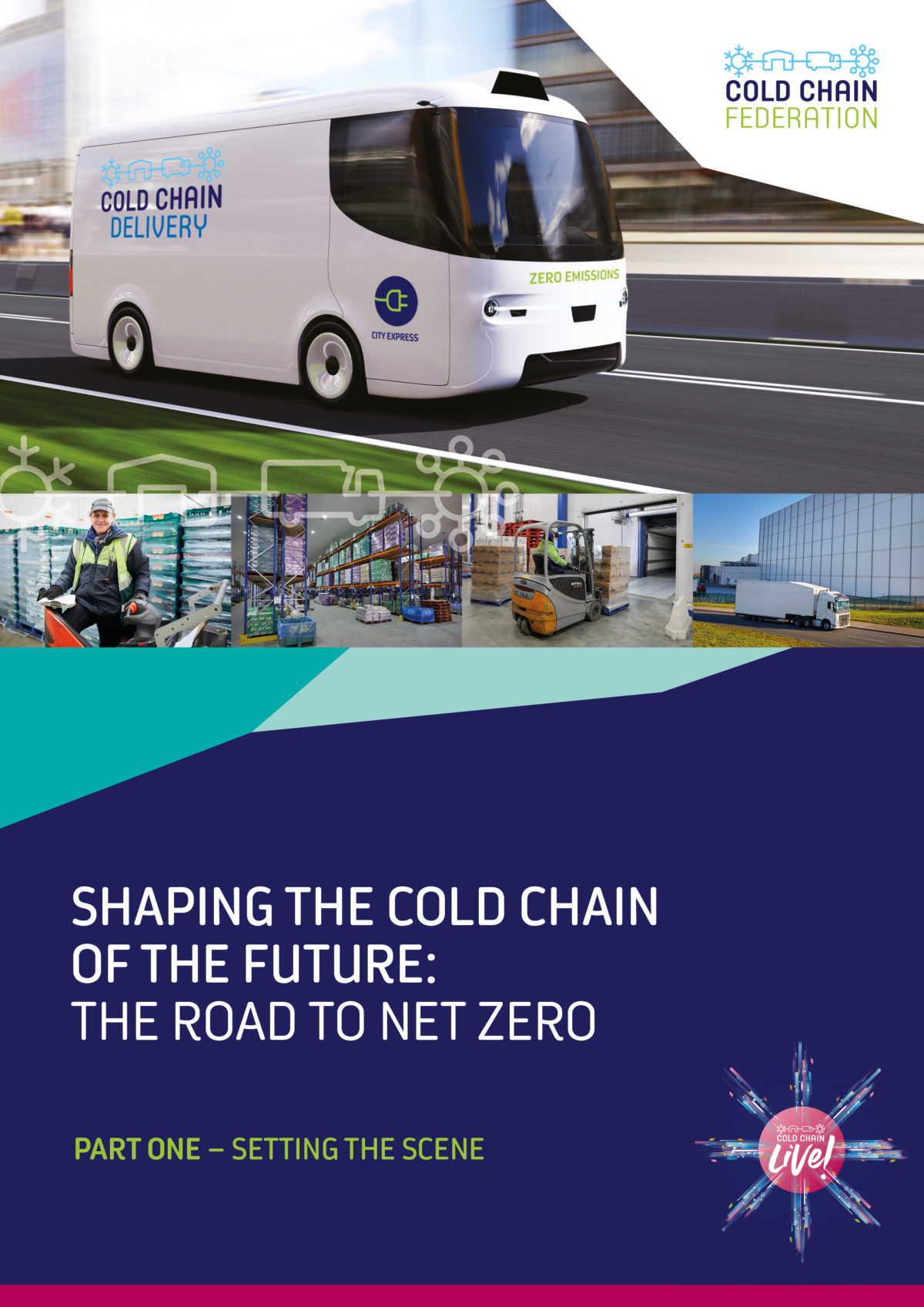
SHAPING THE COLD CHAIN OF THE FUTURE: THE ROAD TO NET ZERO (PART ONE - SETTING THE SCENE)
This document is the basis for the Cold Chain Federation's engagement within and outside our industry; to define what we mean by a net zero cold chain and to ask ourselves where the gaps are in our knowledge and where the potential is for collaboration.
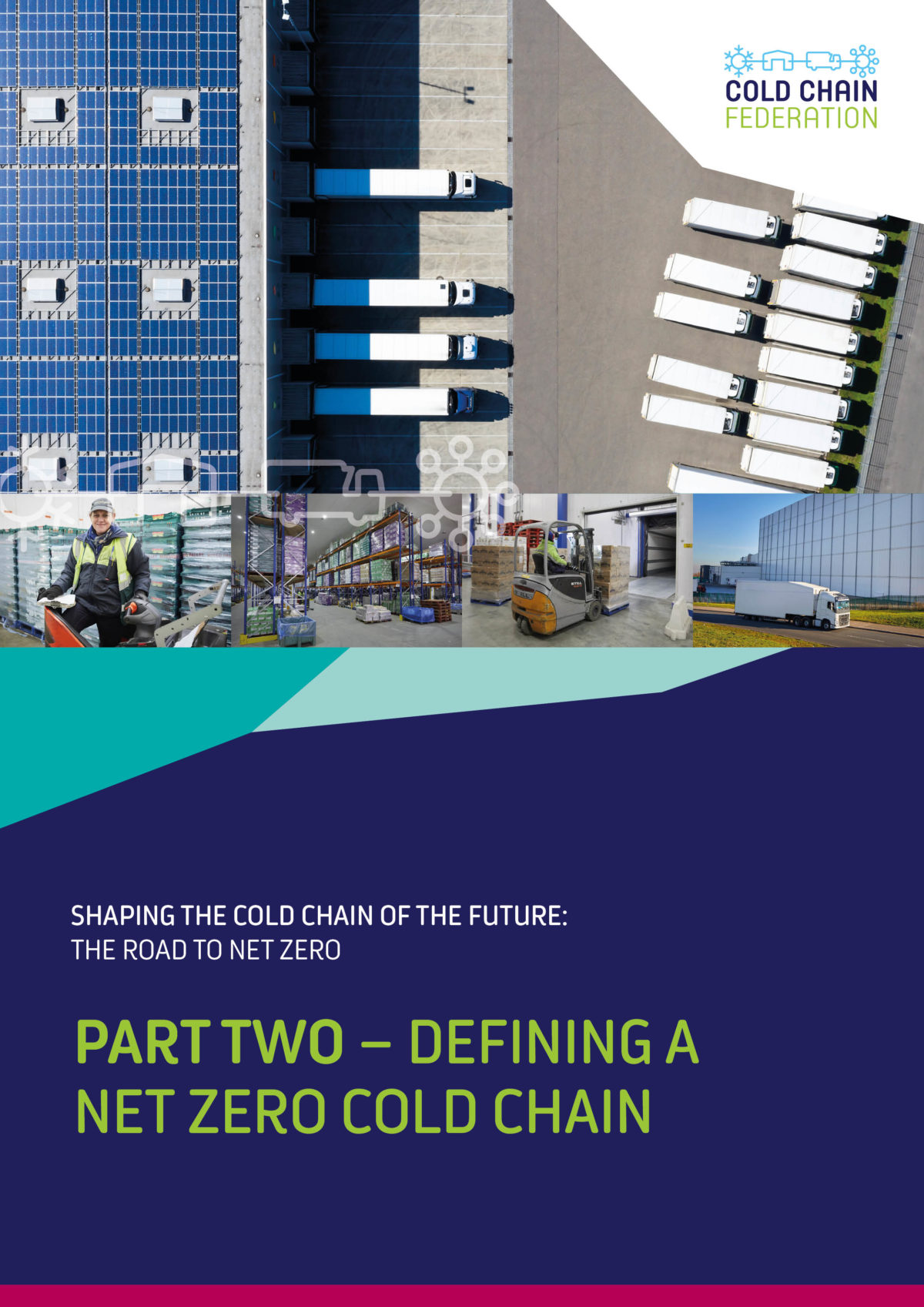
SHAPING THE COLD CHAIN OF THE FUTURE: THE ROAD TO NET ZERO (PART TWO - DEFINING A NET ZERO COLD CHAIN)
Although businesses operating the cold chain are committed to reducing their greenhouse gas (GHG) emissions and other pollutants in line with UK Government targets, we are not as yet in a position to estimate the extent to which we can reach net zero by 2050 and to set our own firm targets. The guide sets out why it is imperative to determine the carbon footprint of the cold chain, and also the Cold Chain Federation’s commitment to not only support members to assess their own emissions, but to also support recently announced academic studies to assess the total emissions from the UK cold chain.
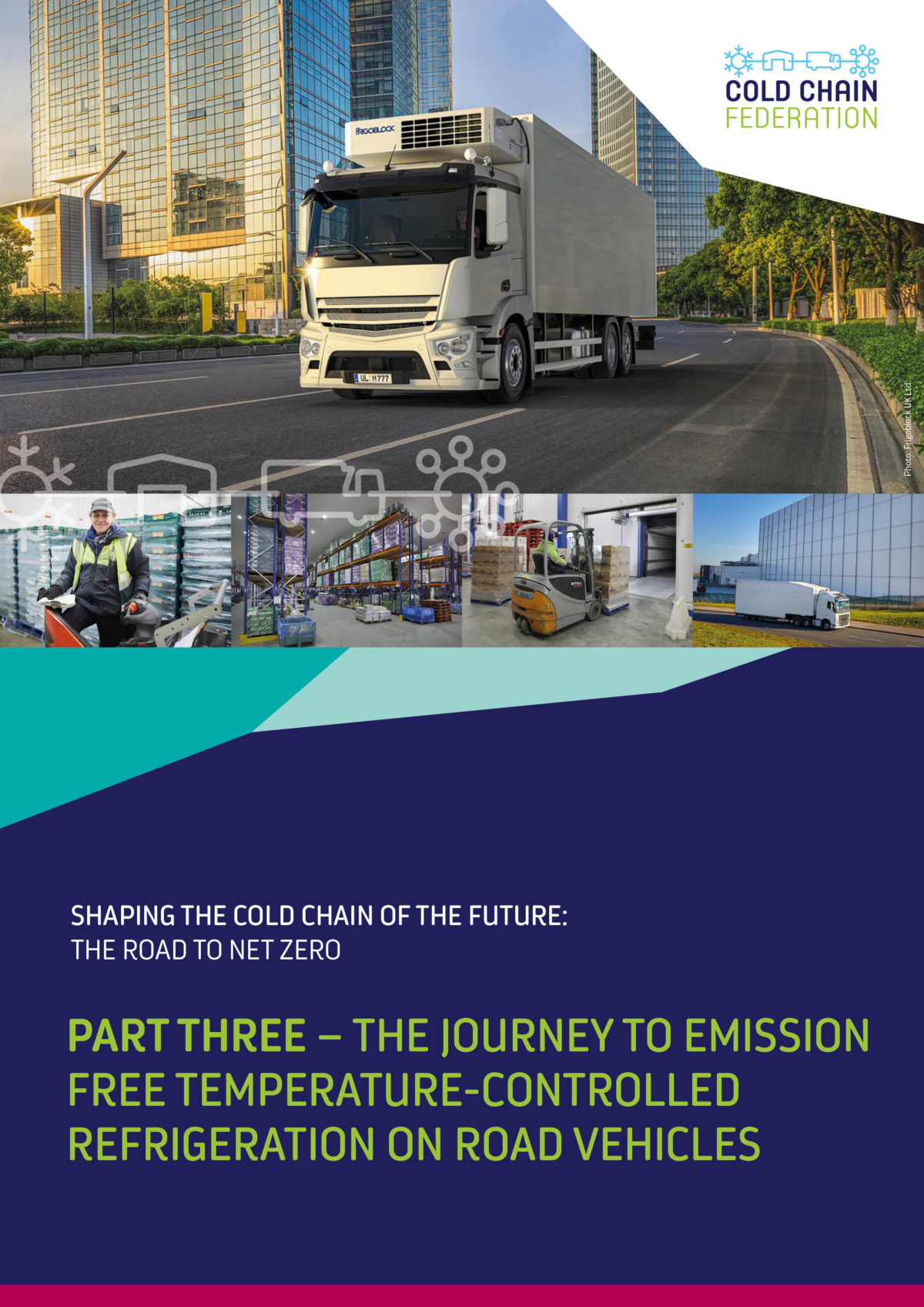
SHAPING THE COLD CHAIN OF THE FUTURE: THE ROAD TO NET ZERO (PART THREE - THE JOURNEY TO EMISSION FREE TEMPERATURE-CONTROLLED REFRIGERATION ON ROAD VEHICLES)
The Journey Towards Emission Free Temperature-controlled Distribution on Road Vehicles is our vision for how transport refrigeration units (TRUs) can transition away from diesel, to emission free alternatives in line with the UK’s decarbonisation and air quality targets. It sets out our view on the technological outlook for TRUs, how operators and manufacturers will adapt to drive down emissions and finally the financial, infrastructural and regulatory support which will be required to enable us to meet our ambitious targets.
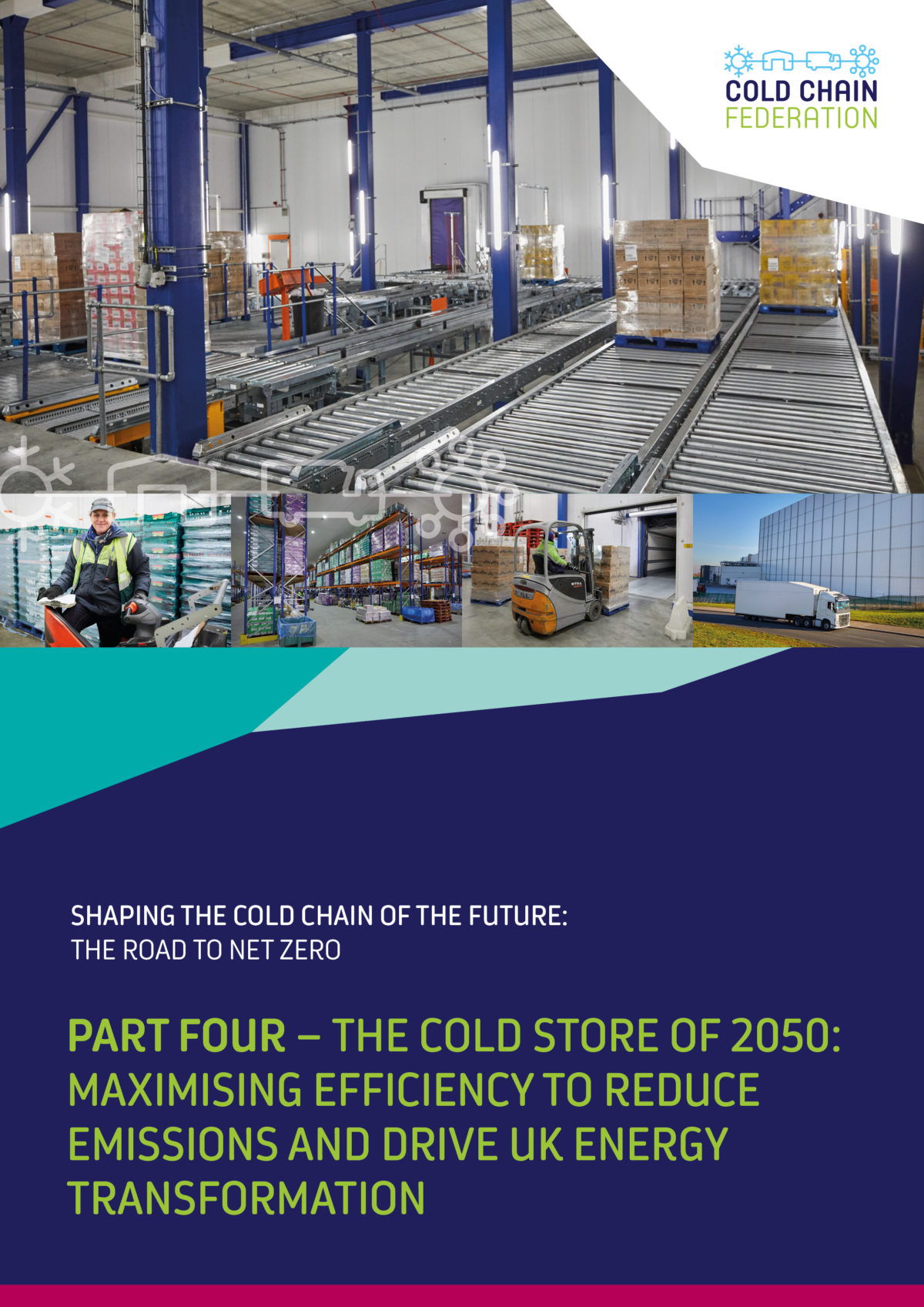
Road to Net Zero Part 4 - Cold Store of 2050
The Cold Store of 2050 is our vision for how temperature-controlled warehouses could evolve to achieve a step change in energy efficiency whilst driving energy transformation in the UK as part of the transition towards a net zero economy by 2050. The report details the technologies which could become more widespread, the barriers to their adoption and how businesses, government and those responsible for the UK energy network will need to collaborate to ensure the opportunities and benefits detailed in this report are achieved.
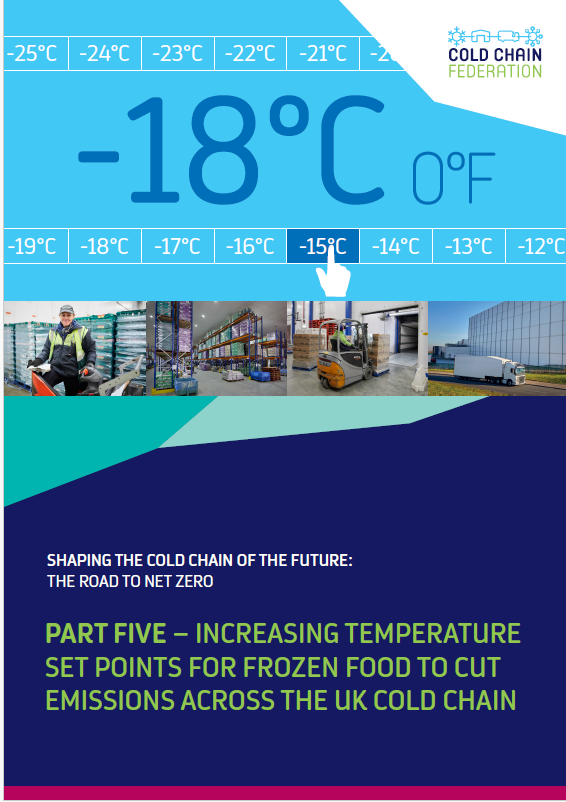
INCREASING TEMPERATURE SET POINTS FOR FROZEN FOOD
This report provides an overview of the theory behind the global initiative to assess temperature set points for frozen food storage and how the UK cold chain could reduce energy use and slash emissions.
This report is a call for action, it sets out the broad actions needed to progress the concept in the UK and how the Cold Chain Federation will work with our members and other stakeholders across the food supply chain to fully explore how we can all turn up the dial on frozen.
For more information about the Cold Chain Net Zero Project contact [email protected]
